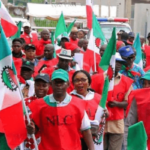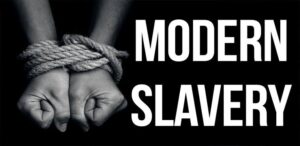NIGERIA’S PALLIATIVE LOAN AMIDST FUEL SUBSIDY REMOVAL AND ECONOMIC STRAIN

Borrow
INTRODUCTION:
Nigeria has been under the most dire hands for the past eight years. The story of agony, pain, and bloodshed has become the main dish served on the leadership table.
Inflation continues to inflate the bellies of the masses with hunger, starvation, sickness, and kwashiorkor.
Then comes the 2023 swearing-in story: “Fuel subsidy is gone,” he said, “I will remove the fuel subsidy and build a refinery in 6 months.” Like an earthquake, there was a national shock. The price of fuel and other commodities skyrocketed 200% in one day due to the single swearing-in speech. This unsettling paradox involves borrowing billions of dollars to import the food that Nigeria should be exporting, which becomes a renewed looting strategy contributing to the nation’s woes.
THE REMOVAL OF FUEL SUBSIDY AND ITS CONSEQUENCES:
The removal of fuel subsidies, a decision ostensibly made to address economic concerns, ironically resulted in exacerbating the very issues it aimed to alleviate. The abrupt hike in fuel prices led to an increase in transportation costs, causing a ripple effect throughout the economy, triggering inflation, and compounding the challenges of hunger and starvation.
PALLIATIVES AND THE BORROWING CHOICE:
Amidst growing public outcry over the effects of fuel subsidy removal, the president’s decision to borrow 200 billion Naira for palliatives raises critical questions about the government’s priorities. While palliatives are necessary in times of crisis, borrowing such a substantial amount without addressing the root economic issues, like the lack of refineries, appears shortsighted and ultimately unsustainable.
THE REFINERY DEFICIENCY:
Nigeria’s status as one of the world’s top oil producers only adds to the perplexity of its predicament. Why does a nation with abundant oil resources not have functional refineries? The absence of refineries leaves the country dependent on importing refined petroleum products, subject to volatile global oil prices and supply disruptions, which in turn contribute to economic instability.
IMPACT ON HUNGER AND INFLATION:
The combination of fuel subsidy removal and economic strain has contributed to a dire situation of hunger and high inflation. The increased cost of living and reduced purchasing power have left millions of Nigerians struggling to meet their basic needs. The choice to allocate borrowed funds for palliatives rather than investing in infrastructure perpetuates a cycle of dependency and temporary relief, rather than sustainable economic improvement.
CONCLUSION:
The decision by Nigeria’s president to borrow 200 billion Naira for palliatives in the midst of removing fuel subsidies without addressing the refinery deficiency reflects a misalignment of priorities and a lack of foresight. The resulting consequences include looming danger, hunger, starvation, and high inflation. This highlights the urgency of addressing the root causes of economic instability. To truly uplift the nation, leaders must focus on long-term solutions, such as revitalizing the refinery sector, to reduce dependency on imports, stabilize fuel prices, and pave the way for sustained economic growth.
THE END
Dear reader, what’s your thoughts on this article, do you have a different view ? What’s your opinion about NIGERIA? Kindly drop a comment in the comment section below.
Related posts:
 NLC Commences Preemptive Strike in Response to Fuel Subsidy Removal Announcement
NLC Commences Preemptive Strike in Response to Fuel Subsidy Removal Announcement
 NIGERIAN SENATE’S INBOX MONEY PRAYERS: A NEW CURRENCY TO SOLVE ECONOMIC WOES?
NIGERIAN SENATE’S INBOX MONEY PRAYERS: A NEW CURRENCY TO SOLVE ECONOMIC WOES?
 Surge in Fuel Costs Prompts Residents of Lagos to Embrace Public Transportation
Surge in Fuel Costs Prompts Residents of Lagos to Embrace Public Transportation
 The federal government is exploring a new $400 million loan to support cash transfers for 15 million households.
The federal government is exploring a new $400 million loan to support cash transfers for 15 million households.



Nawa for nigeria oh
This country no go better titilaye
Ceejay😂😂😂😂😂
You got me laughing, good to have your comment.
Tinubu will sell the remaining part of the Kontry where Buhari stopped. It’s a different kind of shege
Nawa oh… When are we going to arrive the promise land…..
There is no promise land in view when Drug lords and swindlers are on the steering.